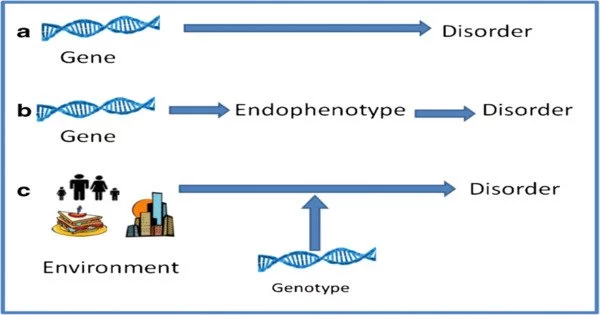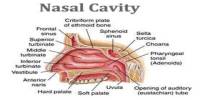Psychiatric genetics is a branch of genetics that studies the genetic basis of mental illnesses. It is a branch of behavioral neurogenetics and behavioral genetics that investigates the role of genetics in the development of mental disorders like alcoholism, schizophrenia, bipolar disorder, and autism. Among these are schizophrenia, bipolar disorder, major depressive disorder, attention-deficit/hyperactivity disorder (ADHD), and others.
The fundamental principle of psychiatric genetics is that genetic polymorphisms (as indicated by linkage to a single nucleotide polymorphism, for example) contribute to the causation of psychiatric disorders. The study of genetic factors in the onset, progression, and manifestation of mental health disorders.
Key aspects of psychiatric genetics include:
- Heritability: Researchers investigate the heritability of psychiatric disorders to determine how much genetic factors influence the risk of developing a specific disorder. Estimates of heritability aid in quantifying the genetic influence on observed variability in a population.
- Candidate Gene Studies: Previously, researchers concentrated on specific genes thought to be linked to psychiatric disorders. Candidate gene studies entailed looking into variations in these specific genes to see if there were any links to mental health issues.
- Genome-Wide Association Studies (GWAS): Technological advancements have enabled large-scale genetic studies such as GWAS. These studies look at the entire genome to find common genetic variants linked to psychiatric disorders. GWAS have aided in the identification of numerous genetic markers linked to diseases such as schizophrenia, bipolar disorder, and major depressive disorder.
- Copy Number Variations (CNVs): Researchers also explore the role of structural variations in the genome, such as CNVs, in psychiatric disorders. These are duplications or deletions of large segments of DNA that may influence the risk of developing a mental health condition.
- Polygenic Risk Scores (PRS): PRS involve calculating an individual’s genetic risk for a psychiatric disorder based on the cumulative effects of multiple genetic variants. This approach helps assess the overall genetic susceptibility to a particular condition.
The term “psychiatric genetics” refers to a relatively new name for the age-old question, “Are behavioral and psychological conditions and deviations inherited?” The goal of psychiatric genetics is to better understand the causes of mental illnesses, to use that knowledge to improve treatment methods, and possibly to develop personalized treatments based on genetic profiles. To put it another way, the goal is to turn parts of psychiatry into a neuroscience-based discipline.
Recent advances in molecular biology have enabled the discovery of hundreds of common and rare genetic variants that contribute to psychiatric disorders.
















